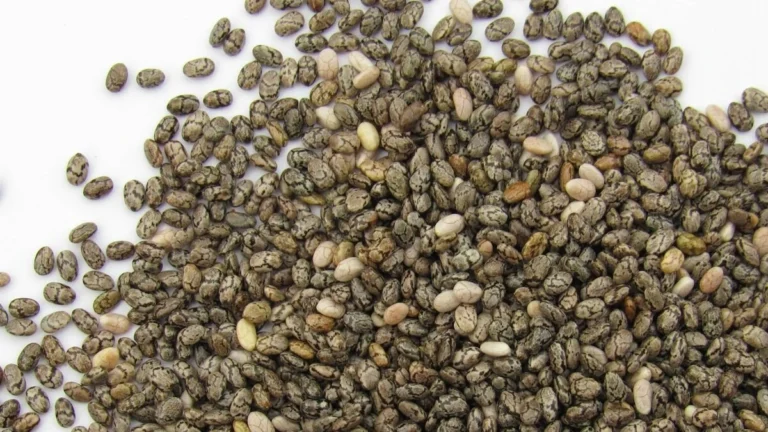When we talk about pain relievers, ibuprofen commonly known by its brand name Brufen often tops the list. It’s a trusted over-the-counter medication used to relieve pain, inflammation, and fever. But as research evolves, scientists are now asking a thought-provoking question: can ibuprofen do more than just relieve pain could it also help prevent cancer?
Let’s explore what the evidence says, how it works in the body, and what these findings could mean for your health.
WHAT IS IBUPROFEN (BRUFEN)?
Ibuprofen belongs to a class of drugs called nonsteroidal anti-inflammatory drugs (NSAIDs). It works by blocking enzymes known as cyclooxygenases (COX-1 and COX-2), which play a major role in producing prostaglandins chemical messengers that trigger inflammation, pain, and fever.
By reducing prostaglandin synthesis, ibuprofen relieves inflammation and discomfort in various conditions, from arthritis to menstrual cramps. But the same anti-inflammatory mechanism that helps ease pain has led scientists to explore whether ibuprofen could also slow or prevent the chronic inflammation that drives certain cancers.
THE LINK BETWEEN INFLAMMATION AND CANCER
Inflammation, while essential for healing, becomes harmful when it turns chronic. Prolonged inflammation can cause DNA damage, stimulate abnormal cell growth, and create a microenvironment favorable for tumor development.
According to a 2019 review in Nature Reviews Cancer, approximately one in five cancers are linked to chronic inflammation caused by infections, autoimmune diseases, or long-term tissue irritation. This connection forms the scientific basis for investigating anti-inflammatory drugs like ibuprofen as potential preventive agents.
HOW DOES IBUPROFEN WORK?
Ibuprofen inhibits COX-1 and COX-2 enzymes, leading to a decrease in prostaglandins that promote inflammation and tumor growth. Elevated COX-2 expression has been detected in several malignancies, including colorectal, breast, and prostate cancers.
By blocking COX-2, ibuprofen may help reduce cell proliferation and angiogenesis the process of forming new blood vessels that nourish tumors. This pharmacological action is what has driven many large-scale studies exploring NSAIDs in cancer prevention.
RESEARCH ON IBUPROFEN AND CANCER PREVENTION
1. COLORECTAL CANCER
Among all cancer types, colorectal cancer has shown the most consistent link with NSAID use.
A major study published in Gastroenterology revealed that individuals who regularly used NSAIDs, including ibuprofen, had a significantly lower risk of developing colorectal adenomas, which are precancerous polyps.
Similarly, a Lancet Oncology meta-analysis (2017) confirmed that regular NSAID users experienced up to a 40% reduction in colorectal cancer risk compared to non-users.
Adding further credibility, a large cohort study in JAMA Oncology (2018) found that long-term NSAID use was associated with a lower incidence of colorectal cancer, especially among those with a family history or genetic predisposition. The researchers attributed this effect to sustained suppression of COX-2 and related inflammatory pathways in the colon.
2. BREAST CANCER
When it comes to breast cancer, findings are less uniform but still noteworthy.
In Cancer Prevention Research (2019), scientists observed that postmenopausal women who regularly used NSAIDs had a modestly reduced risk of developing breast cancer, particularly hormone receptor-positive types.
In line with this, an analysis published in JAMA Internal Medicine (2016) suggested that regular ibuprofen or aspirin users showed slightly lower breast cancer mortality, likely due to anti-inflammatory and anti-proliferative effects. These findings strengthen the argument that reducing systemic inflammation might influence tumor progression in hormone-sensitive tissues.
3. PROSTATE CANCER
Research on NSAIDs and prostate cancer also shows intriguing associations. A study reported in The Journal of the National Cancer Institute revealed that men who used ibuprofen regularly had a lower risk of prostate cancer compared to non-users.
Supporting this, data published in JAMA Oncology (2019) indicated that chronic low dose NSAID use might decrease prostate cancer incidence, particularly aggressive forms. The suggested mechanism involves reduced local inflammation and suppression of prostaglandin-mediated tumor growth in the prostate gland.
4. OTHER CANCERS
Beyond the major cancer types, emerging studies have looked at ibuprofen’s effect on ovarian, lung, and bladder cancers. For example, a 2020 investigation in Cancer Epidemiology, Biomarkers & Prevention observed that regular ibuprofen use was linked to a modestly lower risk of epithelial ovarian cancer.
Interestingly, a JAMA Network Open (2020) analysis pooled data from multiple cohorts and found that frequent NSAID users had slightly reduced risks of several inflammation-related cancers, although researchers cautioned that more controlled trials are necessary to confirm causality.
These findings collectively suggest that ibuprofen’s cancer-preventive potential is biologically plausible but not yet strong enough to warrant preventive use without medical supervision.
THE PROS AND CONS OF USING IBUPROFEN FOR CANCER PREVENTION
Like any pharmacological intervention, using ibuprofen for prevention involves both potential benefits and risks.
PROS:
• Widely accessible and affordable: Ibuprofen is an over-the-counter medicine available globally.
• Anti-inflammatory and multipurpose: It addresses pain, fever, and inflammation while potentially modulating cancer-related pathways.
CONS:
• Adverse effects: Long-term or high-dose use can cause gastric ulcers, gastrointestinal bleeding, kidney impairment, and increased cardiovascular risk, as reported by The BMJ (2013).
• Uncertain dosing: The preventive dose for cancer risk reduction is unclear, and therapeutic doses for pain relief may not confer the same benefit.
• Observational data limitations: Most findings are from population studies, not randomized clinical trials.
CONSULTING YOUR HEALTHCARE PROVIDER
Before considering ibuprofen as a preventive measure, always consult a healthcare professional. Long-term NSAID use can be harmful, especially for individuals with hypertension, cardiovascular disease, or renal impairment.
Your pharmacist or physician can assess your risk-to-benefit ratio, guide safe use, and recommend personalized preventive strategies.
ALTERNATIVE EVIDENCE-BASED WAYS TO REDUCE CANCER RISK
While ibuprofen’s potential is exciting, no single drug can replace proven, evidence-based lifestyle approaches. The World Health Organization (WHO) and American Cancer Society (ACS) recommend:
• Maintaining a healthy weight: Obesity is a major risk factor for colorectal, breast, and pancreatic cancers.
• Eating a plant-rich diet: Fruits, vegetables, and whole grains reduce oxidative stress and inflammation.
• Avoiding tobacco: Smoking remains the most preventable cause of cancer.
• Limiting alcohol: Excessive intake is linked to several cancer types.
• Regular screening: Early detection significantly improves survival rates.
CONCLUSION
In summary, ibuprofen’s anti-inflammatory mechanism shows genuine potential in reducing cancer risk, especially for colorectal, breast, and prostate cancers.
Evidence from JAMA, Lancet Oncology, and Gastroenterology underscores this link, though more randomized clinical trials are needed to establish causality and optimal dosing.
However, it’s crucial to remember that ibuprofen is not a substitute for healthy living or medical supervision. Overuse carries real risks, and prevention is best approached holistically through diet, exercise, regular screening, and informed medical guidance.
The future of cancer prevention may indeed include insights from everyday medicines like Brufen, but for now, caution, evidence, and balance remain the pharmacist’s best prescription.
FAQs
1. Can I take Brufen daily to lower my cancer risk?
No. Routine ibuprofen use for cancer prevention is not recommended. Always seek medical advice before prolonged use.
2. Which NSAID has the most evidence for cancer prevention?
Aspirin currently has stronger evidence for colorectal cancer prevention, supported by JAMA and The Lancet studies, while ibuprofen research remains promising but inconclusive.
3. Does short-term ibuprofen use reduce inflammation-related cancer risk?
Short-term use for pain or fever is safe for most individuals but does not influence long-term cancer development.
DISCLAIMER
This article is for educational purposes only and should not replace professional medical advice. Always consult your doctor or pharmacist before initiating or changing any medication regimen.
CALL TO ACTION
If you found this information helpful, share it to raise awareness about how everyday medications might have broader health implications. Follow for more pharmacist-reviewed, evidence-based insights into how science shapes better health decisions.
Read more: https://pharmahealths.com/global-handwashing-day-regular-vs-antibacterial-soap/
REFERENCES
1. Thun MJ et al. Nature Reviews Cancer. 2019;19(3):141–157.
2. Rothwell PM et al. The Lancet Oncology. 2017;18(5):639–651.
3. Jacobs EJ et al. Cancer Prevention Research. 2019;12(9):589–598.
4. Mahmud SM et al. Journal of the National Cancer Institute. 2014;106(6):dju121.
5. Wang A et al. Cancer Epidemiol Biomarkers Prev. 2020;29(8):1572–1580.
6. García Rodríguez LA et al. The BMJ. 2013;346:e8557.
7. Chan AT et al. JAMA Oncology. 2018;4(12):1763–1772.
8. Holmes MD et al. JAMA Internal Medicine. 2016;176(6):774–782.
9. Hu H et al. JAMA Network Open. 2020;3(9):e2016922.







